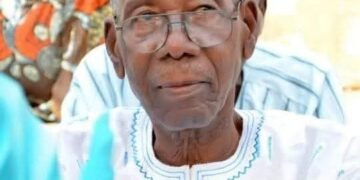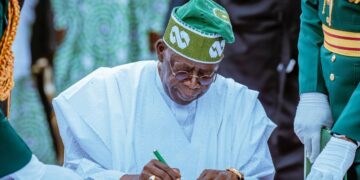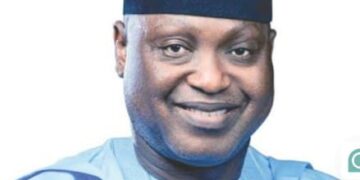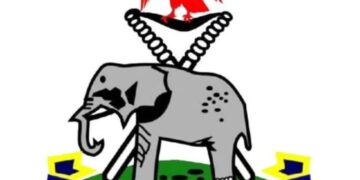Evidently, one thing is clear about the youth category, the boundaries defining the transition from childhood to youth and from youth to adulthood are shifting, and the crossover into each new stage is now manifested in different ways. True, the age range 15-24 is often used by the United Nations and others for statistical purposes, but in many cases, this distinction is too narrow for countries like Nigeria, where youths at that category don’t even know about their future. I’m a Nigerian youth, so I obviously know that youthfulness is characterised by the vibrancy, energy and curiosity that is needed to create social development. Little will you know why it is imperative for the youth to be realistic in the quest to put their knowledge, vibrancy and potentials at the behest of the nation through participation.
In Nigeria, everybody is tired of the old people rulling the country, but the fact remains no old politician is ready to leave the stage for the youth. For years the older generation has been in the saddle, enjoying the splendor and aura of power. Something that they have been holding since their youthful days? Power is sweet indeed. In 2019, in the course to reduce the marginalisation of youths from Government and help reduce the struggle for power, something came up then, which was the signing into law of the “Not Too Young To Run Bill” in 2019 by President Muhammadu Buhari. Among changes to the electoral law was that it help reduced the age for presidential candidates from 40 to 35 and for House of Representatives candidates from 30 to 25 years.
As a result of the Bill, there is a positive trend in youth participation, with youth candidacy increasing from 21% in 2015 to 34.2% in the 2019 elections. Despite these changes, the number of youths aged 18–29 (based on the youth definition given by the National Youth Policy organisation), voted into elective positions in Nigeria is less than 1%. Imagine? Today, there are no youths in the new cabinet formed by President Buhari, and neither is there a youth in the National Assembly. Hence, youths are asking the question of why are they not implementing the Not too young to rule law? Why are they not included in the house of powers, they are asking that why are they rigid in engaging them into these places of government? Let me tell you a verity. It’s not far fetched, i know the answer, Nigerian youths are still young too rule, far too young. Our generation of youths are not capable of power yet, they are smart, but they can’t handle the integrity of power.
Yes, some of you might want to challenge my dim-witted orientation on this? You might want to ask me if I’m comfortable with the set of fantastically corrupt Nigerian politicians, of whom we have been recycling since 1960. I know you might even think that I’m probably not in my thinking or short od ideas, that am i not tired of the 70 year old man who is short of ideas rulling Nigeria? Yeah, i know. I even know about Obasanjo, of whom had held the reins of power since when he was in his 30s. I know Tafawa Balewa at 34, Okotie-Eboh and Enahoro at 27, MT Mbu at 23, Muritala Muhammed at 28, Buhari at 24, among many others in their 20s and 30s are legendary. Some of these youths are reputed for the formation of political parties such as the Nigerian Youth Movement (NYM), which was the first political party in Nigeria, the Nigeria National Democratic Party (NNDP), and the National Council of Nigeria and the Cameroons (NCNC). These young Nigerians each used the media to speak against the evils of colonialism and demanded independence. Yes, i know about them all, but what have we the “leaders” form?
One thing must be noted about those generation of leaders is the fact that they were were passionate about the emancipation of the people. They have a rounded political education, which inspired them. Can this be said of the present generation of youths? Do we have the type of focus that throws up leaders? What do they even know about Government outside the daily Twitter rants? Who amidst us is in a political party? Yeah, maybe they are social media influencers, but can they really influence government? #Endsars movement you say?
For many years, particularly after the country’s return to democratic governance in 1999, youths were at best seen as supporters, social media ranters, mobilisers or political foot soldiers hired to instigate violence, manipulate elections and intimidate opposing parties. I heard of Deji Adeyanju’s new political position? While this image is not completely the fault of the older generation, these groups enjoyed the idea of youths as political mercenaries rather than competitors. Today, even when Youths are at the helm of power, what do they do? When Youths are at the money spinning levels, how do they do? Let’s go back to our Student Union Government levels in higher institutions, which were established in various institutions of higher learning in Nigeria to Influence school management’s policy, promote orderliness and smooth relationship between students and authorities. Reverse as being the case for most of these student union leaders of some institutions in Nigeria, as they are involved in embezzlement of students fund entrusted in their leadership.
On October 30th 2017, The cable reported that The Student Union President of the University of Nigeria, Nsukka, Joshua Ezeja was impeached for allegedly looting N4 million from the Union’s account. Ezeja was impeached alongside two members of his cabinet for making withdrawals from the SUG account without the endorsement of the Students Union representative council. On the same vein, on the 22nd of April 2018, The Student Union Government of Benue State University also suspended the speaker of the union, Fanen Anjie for allegedly misappropriating N2.2m. Down the year, on August 3rd 2018, Two Nigerian south west Universities’ Students’ union Government leadership were also found in news for collegiate embezzlement and misappropriation of union fund. On this day, The Students’ Union President of the Federal University of Agriculture, Abeokuta, Ogun State, Ayobami Popoola, was suspended for two weeks over an alleged misappropriation of N612,000.
Out there, we say politicians and everybody is corrupt and the bandwagons are seen in our students here. So what they do as soon as they get to office is to get what they have spent on campaign as you will see them during the campaign process pasting posters, buy recharge cards for fellow students, just to assume the position just as we have out there. It’s very unfortunate that the Nigerian youths are now doing the worst. Are they the ones that will rule Nigeria? Are they not too young too rule?
Not only are we bad with leadership, we also have crime, cybercrime most especially, which is a crime perpetrated through electronic communication networks. Youths are proverbially referred to as leaders of tomorrow but how can they be true leaders when they engage in various types of cybercrime at their early age? Also, remember when the Economic and Financial Crimes Commission (EFCC) declared Adewale Daniel Jayeoba, a 24 year old investor wanted over an alleged investment scam, for allegedly defrauding people in a N935million Ponzi scheme. Again, eighteen months after his arrest, Obinwanne Okeke, a celebrated Forbes Nigerian entrepreneur was finally sentenced for a multi-million dollar fraud in the United States. And we still think we are not too young to rule?
It is sad that when President Buhari and his fellow mates rulling us were youths, they were smarter than us, posses quality vision than us and better in government than us. The Nigerian Youths? I don’t believe us? We will always fail us? They are smart in the wrong places, they look strategical and tactically impaired, they are not like their forefathers with visions for emancipation. Give a 25 year old Buhari’s position today, and i tell you he’ll go blank of ideas. Give a 35 year old a Governor’s seat, and i tell you he will break the chair. Now, i don’t say we don’t have eligible youths who are smart with great hands for leadership and passion for development, at least i know few youths. In conclusion, maybe the responsible Nigerian youths should still continue to rant on Twitter, maybe the smart one amidst us should sit at home and continue to criticize Buhari, maybe they should not actively participate in the real politics, and maybe Nigerian youths still needs another 40 years in wilderness, before we can know if we are ready to rule Nigeria.
Ogungbile Emmanuel Oludotun













